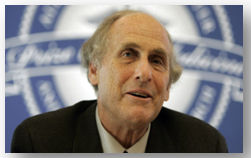
Nobel-Prize winner used his dendritic cell therapy to treat cancer
Nobel-Prize winner used his dendritic cell therapy to treat his own cancer. Reuters profiled Steinman’s efforts to treat his own pancreatic cancer using his Nobel Prize-winning dendritic cell therapy. Steinman on Oct. 3 received the 2011 Nobel Prize in medicine for his immunology research and his 1973 discovery of dendritic cells , which allowed for the creation of the first therapeutic cancer vaccine.
However, just three days prior to receiving the award, Steinman died after a four-and-a-half-year battle with pancreatic cancer. In an effort to beat his own cancer and develop a cure for others, Steinman opted to receive all available conventional therapies, including chemotherapy, and unproven treatments, such as an experimental melanoma vaccine and the dendritic cell therapy he had helped develop.
Nobel-Prize winner used his dendritic cell therapy to treat cancer. For the dendritic cell therapy, Steinman received eight to nine doses of dendritic cells made from his own blood and blood precursor cells. In the end, Steinman lived more than three years longer than expected.
Although colleagues say it is impossible to determine which treatments prolonged his life, Steinman himself believed it was the dendritic cell therapy, Reuters reports.


 Deutsch
Deutsch Nederlands
Nederlands Turkish
Turkish Russian
Russian Italiano
Italiano Français
Français Português
Português العربية
العربية